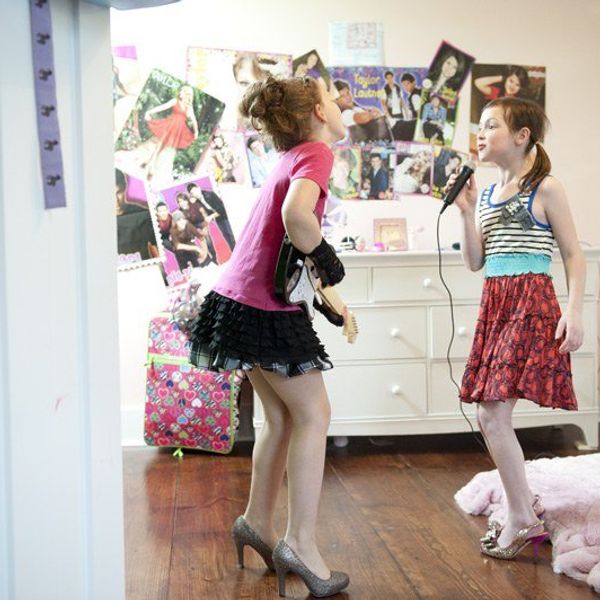And probably a sexist xenophobe too.
As a student of philosophy, I believe it is very important to properly define our terms. Let’s begin with a coherent definition of race, racism, and racist:
Recommended for you
Race.
1. "A group of people identified as distinct from other groups because of supposed physical or genetic traits shared by the group. Most biologists and anthropologists do not recognize race as a biologically valid classification, in part because there is more genetic variation within groups than between them. (Link added by author to original quote.)
2. A group of people united or classified together on the basis of common history, nationality, or geographic distribution: the Celtic race.
3. A genealogical line; a lineage.
4. Humans considered as a group.”*
- The Free Dictionary
As you can see, race is in the eye of the beholder. Race as a concept is made up by those who want to discriminate. So, under the second definition, Mexicans are a "race." Under the fourth definition, Muslims are a "race." You might say that’s silly, to which I respond, yes, the entire idea is of race is rather silly.
Racism
1. "A belief that race is the primary determinant of human traits and capacities and that racial differences produce an inherent superiority of a particular race."*
2. "[S]ocietal patterns that have the net effect of imposing oppressive or otherwise negative conditions against identifiable groups on the basis of race or ethnicity."**
*Merriam-Webster Dictionary
**Tom Head on institutional racism, Civil Rights expert and author of the Historical Dictionary of American Civil Liberties and the ACLU, 2014.
And from this definition, we can clearly see the definition of racist:
1. A person who holds a racist belief.
2. A person or action that seeks to or actually does perpetuate a system of racism.
The first definition of racism is what we call individual racism; one particular person believes in the superiority of their own [race], and so does whatever is in their power to discriminate against a member of another [race]. I put the word race in brackets for two reasons. First, because race is in the eye of the beholder, it can mean whatever magical made-up thing you want it to mean. Second, because you can easily replace "race" with any other feature that separates us from one another and come up with another form of individual bigotry. Plug in [gender] and you have the sexist, [religion] and you have the religiously intolerant, [nationality] and you have the xenophobe, [sexuality] and you have the homophobe, heterophobe, or biphobe, and the list goes on. Our bigotry really knows no bounds.
It is of this first definition that almost all even minutely socially-conscious Americans are terribly afraid of and seek to avoid at all costs. This fear motivates most of us never to say the “N,” “C,” or “K” words. The words themselves hold no internal power; it is only in the inherently derogatory way in which they are used that they have any effect. In our polite society, we now refrain from using those words and instead replace them with more coded speech. This avoidance oftentimes comes in the form of an “I’m not racist, but,” statement that usually ends in an objectively racist comment. I, too, hate political correctness when it is used as an excuse to actually be a bigot without sounding like one.
The second definition of racism speaks to the systemic problems in institutions which continue to pervade within our society. The broken education system, the gentrification of minority communities, and the discriminatory judicial system are all examples of institutional racism. Now, does that make every teacher, principal, coach, land developer, real estate agent, construction worker, police officer, prosecutor, and judge a racist?
No. There are many people in each one of these professions working to overturn the problems within their fields. I hold out hope that these areas will make significant progress in the next few decades, but realize that institutionalized discrimination will likely not die out in my lifetime.
But, there are many in those fields who commit racist acts all the time. Perhaps it was not their intention; perhaps it was so ingrained in their minds as a child that they made no conscious decision to act in a racist way. Regardless, by allowing the system to go on unchanged, they perpetuate a system of racism that hurts millions of people every day.
Perhaps we could call these people "passive racists," for which we can very calmly suggest that they simply be more aware of the problems in their fields and work to combat them. The difference between passive and active racism is when you take an action that you know can directly harm a minority community.
This brings us to the Donald. You can (poorly) argue that Trump is not a racist, sexist, religiously intolerant bigot, but you cannot deny that his actions do not perpetuate an oppressive system against Muslims and Mexicans (and also the larger Hispanic and Latino community). Here is a simple little trick to decipher his not-so-coded words: Every time you hear one of his policies, simply replace the targeted demographic with Jews, and you will very quickly realize how similar they sound to another demagogue from recent history.
“I want to ban all Jews coming into the country.”
“Build a wall to keep the Jews out and make the Jews pay for it.”
“We need to make a list of all the Jews and keep track of their movements.”
To vote for a man who seeks to perpetuate the racist systems of the country, and implement them, is to commit a consciously racist act. You are not passively perpetuating a racist system; you are actively taking an action that will damage the welfare of another group of people. As such, you cannot be excused of your action.
So, voting for Trump does make you a racist.


















